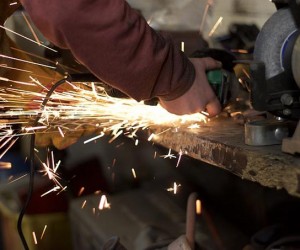All attempts to stop the implementation of safeguard duties have failed.
According to an announcement by the Department of Trade and Industry (the dti), safeguard duties came into effect on 11 August 2017. From this date import duties of 22 percent (10 percent customs- and 12 percent safeguard duties) will be paid on all imports of hot rolled steel.
After the visit by Mr Laksmi Mittal, the foreign owner of Mittal, to president Zuma, and the resulting BBBEE deal announced by AMSA, it was quite clear that the implementation of safeguard dutieswere inevitable, regardless of all the arguments to the effect that the introduction was nonsensical and would be seriously harmful to the downstream Industry. The dti's consultation with the downstream was a farce, it was simply done to pay lip service to the process and not to influence the outcome in any way.
The introduction of the safeguards comes despite all the arguments presented to the dti that safeguards will result in the immediate downsizing of downstream businesses and consequently retrenchments - resulting in many more job losses than would have been the case if AMSA, in the absence of safeguards, were to close a part of its operations.
The introduction of safeguards also comes in spite of the fact that AMSA does not have the capacity to deliver its products on time and the fact that its steel, in many cases, is inferior, to the extent that downstream customers are forced to import quality steel. The introduction of safeguards brings about duties on some products which AMSA does not even manufacture and the downstream is compelled to import. This in itself is simply illogical and extremely unfair.
The safeguards are introduced notwithstanding the fact that the International Trade Administration Commission (ITAC), quite recently, found that a safeguard duty is not in the public interest and the fact that the rebate system (held to be a form of aid to the downstream) is in disarray, administratively unenforceable and completely impractical.
The safeguard duties are introduced to protect AMSA's antiquated steel milling operations which will never be able to produce steel at competitive prices to the local market. The protection of AMSA won't save AMSA in the long run; its uncompetitiveness will cause it to fail eventually, but only after the protection afforded to it has caused irreparable harm to the downstream.
If there is no sense in protecting this monopolistic liability, why then does government protect it? And not only protect it, but protect it at the expense of its national asset, the Steel downstream?
One possible answer is that they can. Government can do as they please - at least this is what they believe - especially since the consequences of ill-advised decisions take a long time to materialise. When the adverse impact of these decisions comes to light, government will apportion blame somewhere else.
Perhaps the answer lies in the mysterious but sudden change in attitude by the Minister of Trade and Industry in respect of protecting AMSA immediately after the visit to president Zuma by the foreign owner of AMSA. What was discussed, what promises were made to cause this sudden change of heart and policies? The Industry can only speculate about this, because it cannot know with any certainty what was discussed. However, there are strong suspicions pertaining to this. In the meantime, Industry has to resign itself that in the current South African political environment this is the manner in which business is done. Or does it?
As far as business is concerned, they won't be indifferent about it; they will seek new ways to do business. They will do this because they have to; this is the nature of business, because they have no other option. They will not take this lying down. There will, however, be enormous damage to the Industry and the consequent decline will be more rapid.
Perhaps the problem lies in the fact that business, especially big business, believe that they have to be polite when dealing with government. There is just not sufficient push-back. Perhaps big business still benefit too much from their cosy financial relationship with government, not realising that poor government decisions and policies will one day lead to these benefits disappearing; not realising that 'dissent is the highest form of patriotism'. But perhaps it is just a matter of the attitude of the appeaser who, in the words of Britain's war-time Prime Minister, Winston Churchill, feeds the crocodile, hoping it will eat him last.
This opinion piece is by Gerhard Papenfus, Chief Executive of the National Employers’ Association of South Africa (NEASA).






